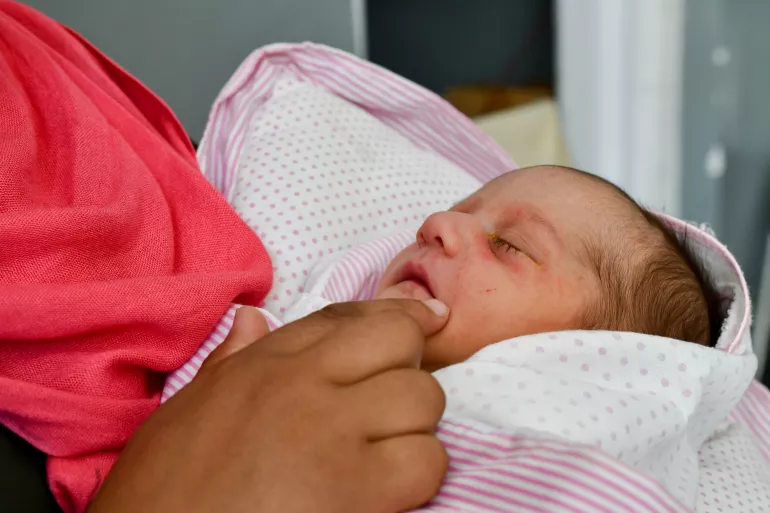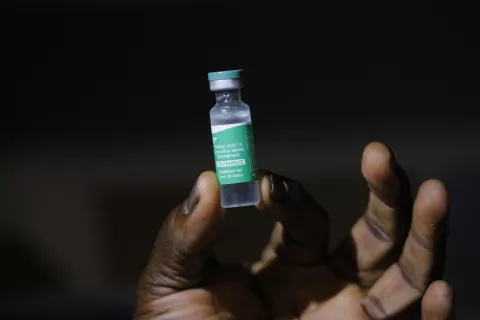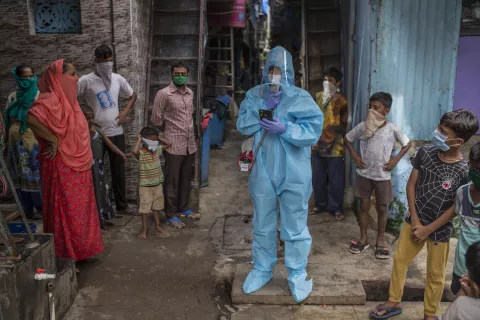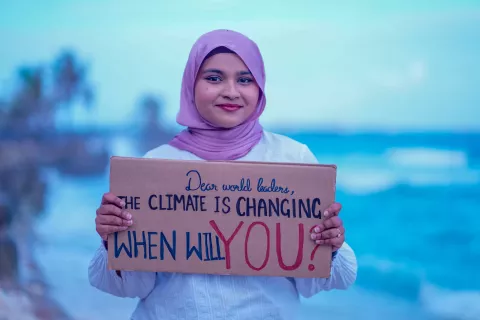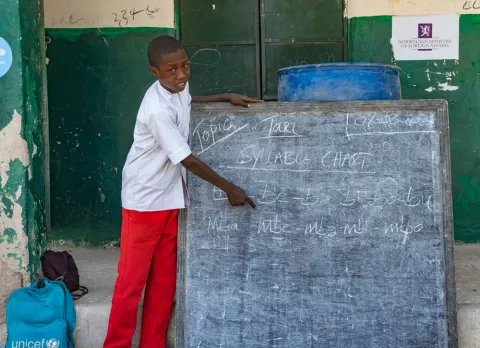In March 2018, I visited Narok County in south-west Kenya. I was there as part of a WHO team to monitor and validate that maternal and neonatal tetanus (MNT) had been eliminated. As part of this work, I visited a home in a remote village. The house was perched on top of a hill and when we made it to the top, I met a mother who had delivered her third child at home because she was alone and unable to get to a health facility. To cut the umbilical cord, she used what was available – a razor her husband used for shaving. Her newborn got infected with tetanus and died. She had two older children who survived because she was able to give birth supervised by a birth attendant under hygienic conditions.
This mother’s story is just one example of the risks many women and newborn babies face in parts of the world where MNT is still a threat. MNT can quickly turn the joy of childbirth into a tragedy. It is a needlessly fatal disease affecting women and their babies in countries where women often give birth at home in sometimes unsanitary conditions. It is a silent killer: nearly 100 percent of the babies that suffer from neonatal tetanus without access to treatment facilities will die.
But there is hope.
When a child is born to a woman protected against maternal and neonatal tetanus, that child is also protected from the disease during the first two months of its life. UNICEF is working on the ground, in countries where MNT is still a risk, to eliminate the deadly yet preventable disease.
MNT is easily preventable through immunization and hygienic birth practices.
Pregnant women and women of reproductive age should receive a primary series of properly spaced doses of tetanus toxoid vaccines in order to be protected throughout their reproductive age.
Since 1999, there have been significant reductions in deaths: from 215,000 babies in 1999 to approximately 25,000 in 2018. Today, MNT has been eliminated in 47 out of a total of 59 at-risk countries. This success is owed to the hard work of all involved at global, regional, national and community levels.
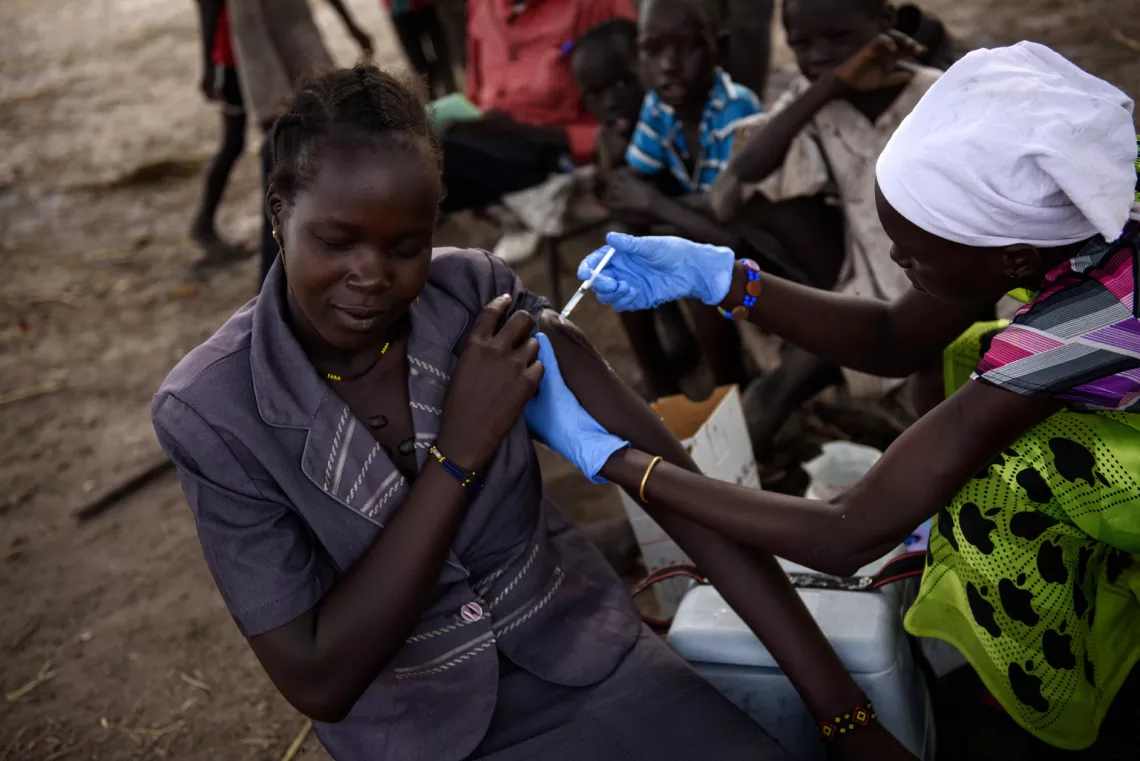
Strong partnerships can make a big difference
In 2006, UNICEF and Pampers, the well-known baby product brand, came together with the goal to help eliminate MNT globally. Every time a Pampers customer bought a UNICEF-branded pack of Pampers, a tetanus vaccine was donated. This simple and engaging cause-related campaign of “1 pack = 1 vaccine” has contributed to saving thousands of newborn lives over the past 15 years. Through a creative and pioneering partnership, we have supported the elimination of MNT in 26 countries.
By 2021, this partnership had contributed to nearly 1 million newborn lives saved. It has procured 300 million vaccines, protecting 100 million women and their babies. Together, 26 countries around the world have eliminated MNT. These are: Burkina Faso, Cambodia, Cameroon, Chad, Cote d’Ivoire, Democratic Republic of the Congo, Ethiopia, Equatorial Guinea, Gabon, Ghana, Guinea Bissau, Haiti, Lao PDR, Indonesia, Liberia, Kenya, Madagascar, Mauritania, Myanmar, Niger, Philippines, Senegal, Tanzania, Timor-Leste, Sierra Leone and Uganda.
The partnership also raised awareness on MNT with employees and customers of Pampers while supporting awareness raising campaigns in communities where MNT is still a risk. In these communities, mothers were encouraged to get vaccinated and deliver babies in safe and sanitary environments. Over the last 15 years, Pampers employees have had the opportunity to visit some countries supported by us. The employees saw first-hand how their contributions and the brand’s support was making a difference.
The partnership also included community-sensitization led by dedicated community health workers, who raised awareness on the benefits of immunization and clean birthing practices. They also encouraged mothers to get vaccinated and deliver in a health facility.
The partnership has been truly pioneering in its approach to raising funds and awareness of the disease.
There have been many wins: for mothers and children in countries where MNT was still a problem; for parents in higher-income countries who contributed to the wellbeing of babies and mothers in other countries, while buying Pampers; for Pampers and their brand; for UNICEF and all partners working to eliminate MNT; and a win for the staff of both organizations who learnt from each other.
Despite the tremendous progress, the fight against MNT is far from over. It has not been eliminated everywhere and the disease remains a risk in 12 countries. In 2021, Pampers continues to support UNICEF’s efforts to eliminate MNT in Pakistan, a country where it remains a risk.
The COVID-19 pandemic has had a catastrophic impact on the programme to eliminate MNT. It has highlighted the importance of immunization and, more than ever, the need to keep working for every child.
UNICEF knows the critical role all partners play including the private sector to achieve long term change for children. We’ll keep working until every child, everywhere, is protected and we hope other partners will join us on this journey.
Dr. Azhar Abid Raza is Immunization Specialist, UNICEF.

